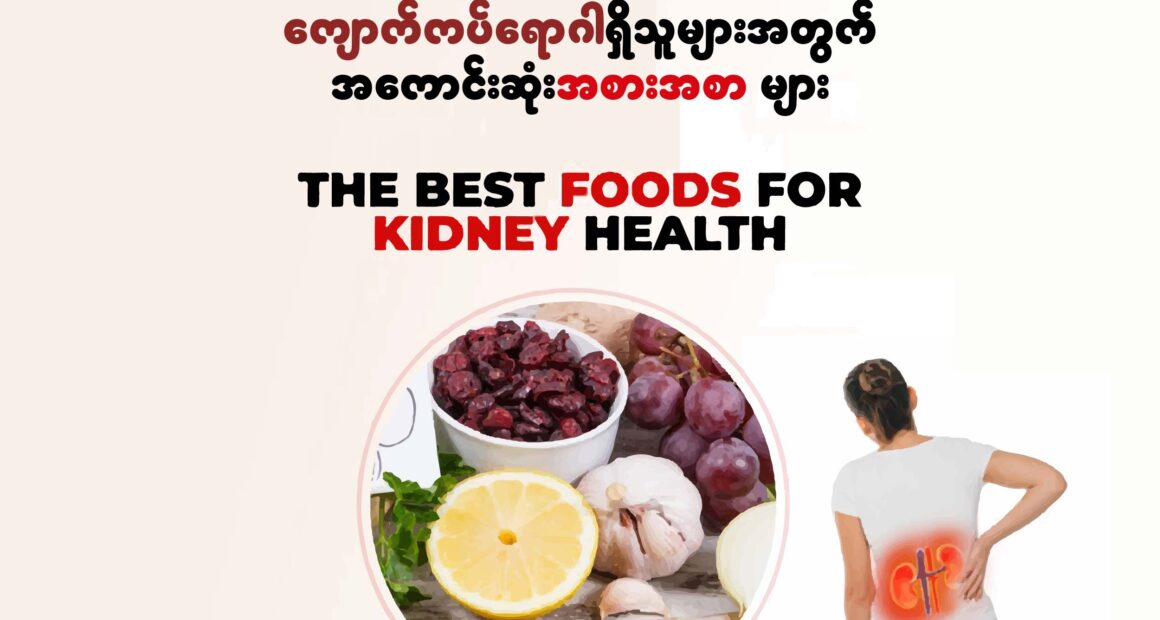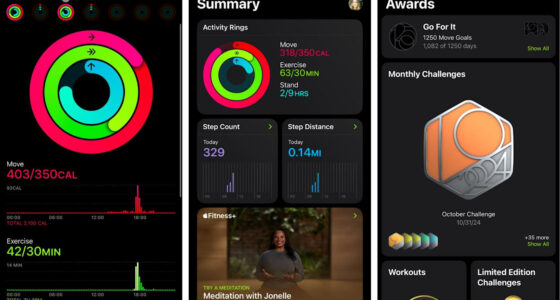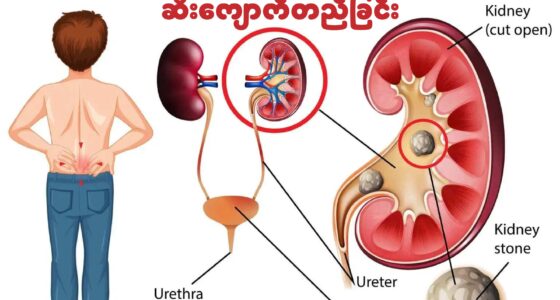Kidney disease affects about 10% of the global population. The kidneys, although small, perform many essential functions for the body. They filter waste from the blood, release hormones that regulate blood pressure, balance fluids, and are responsible for other critical processes. There are many factors that can damage the kidneys.
Diabetes and hypertension are the main culprits of kidney disease. Other contributing factors include obesity, medication use, smoking, genetics, age, and more. High blood sugar and hypertension can gradually damage blood vessels in the kidneys, reducing their ability to function properly. When kidneys do not work effectively, the body cannot eliminate waste, toxins, and food waste, leading to waste buildup in the blood.
People with kidney disease need to choose appropriate foods.
Diet and Kidney Disease
Dietary restrictions can vary from person to person, depending on the stage of kidney damage. The lifestyle, living conditions, and eating habits of the individual also play a role in the prevalence of chronic kidney disease (CKD). CKD can be classified into five stages based on kidney function.
For example, a person with early-stage kidney disease (Stage 1, GFR > 90 mL/min) has different dietary needs compared to someone in Stage 5, or end-stage kidney disease (GFR < 15 mL/min). Therefore, individuals with kidney disease should follow the guidance of healthcare professionals or dietitians who are knowledgeable about kidney health.
Individuals with advanced kidney disease should select foods that help reduce waste levels in the blood. The following foods can support kidney function and help prevent further damage.
While dietary restrictions may differ, it is generally advised that everyone with kidney disease limit the following nutrients:
- Sodium: Sodium is a main component of table salt and is found in many foods. Impaired kidneys may not filter excess sodium, leading to elevated blood sodium levels and potential health risks. It is recommended to limit sodium intake to less than 2,000 mg per day.
- Potassium: Potassium is important for various bodily functions, but individuals with kidney disease need to limit their intake to avoid dangerous blood potassium levels. A daily intake of less than 2,000 mg of potassium is advised.
- Phosphorus: When kidneys are damaged, they cannot adequately remove excess phosphorus from food, which can harm the body. It is recommended to limit phosphorus intake to 800 to 1,000 mg per day.
- Protein: Individuals with kidney disease may need to limit protein intake as their kidneys may not be able to eliminate all waste products from protein metabolism. Those on kidney medication can consume protein as directed by their healthcare provider.
Since each person’s dietary needs may vary, it is important to consult with a healthcare provider about specific dietary requirements. There are many delicious and healthy food options that are low in phosphorus, potassium, and sodium, which are suitable for people with kidney disease. Here are some of the best foods for individuals with kidney disease:
- Cauliflower: A great source of vitamin C, vitamin K, and B vitamins, it contains anti-inflammatory compounds and fiber.
- 1 cup cooked cauliflower (124 g):
- Sodium: 19 mg
- Potassium: 176 mg
- Phosphorus: 40 mg
- 1 cup cooked cauliflower (124 g):
- Blueberries: Packed with nutrients and among the best sources of antioxidants, they can help protect against heart disease, certain cancers, memory loss, and diabetes.
- 1 cup blueberries (148 g):
- Sodium: 1.5 mg
- Potassium: 114 mg
- Phosphorus: 18 mg
- 1 cup blueberries (148 g):
- Salmon: A high-quality protein source rich in omega-3 fatty acids, which can reduce inflammation and lower the risk of cognitive decline and mood disorders.
- 3 oz cooked salmon (85 g):
- Sodium: 74 mg
- Potassium: 279 mg
- Phosphorus: 211 mg
- 3 oz cooked salmon (85 g):
- Red Grapes: Not only tasty but also provide a wealth of nutrients and are high in vitamin C and antioxidants that combat inflammation.
- 1 cup red grapes (75 g):
- Sodium: 1.5 mg
- Potassium: 144 mg
- Phosphorus: 15 mg
- 1 cup red grapes (75 g):
- Egg Whites: While high in nutrients, egg whites are lower in phosphorus, making them a better choice for individuals with kidney disease.
- 2 large egg whites (66 g):
- Sodium: 110 mg
- Potassium: 108 mg
- Phosphorus: 10 mg
- 2 large egg whites (66 g):
- Garlic: Helps reduce sodium in meals while providing nutritional benefits and flavor.
- 3 cloves garlic (9 g):
- Sodium: 1.5 mg
- Potassium: 36 mg
- Phosphorus: 14 mg
- 3 cloves garlic (9 g):
- Olive Oil: A healthy source of fat that is phosphorus-free and beneficial for individuals with kidney disease.
- 1 tablespoon olive oil (13.5 g):
- Sodium: 0.3 mg
- Potassium: 0.1 mg
- Phosphorus: 0 mg
- 1 tablespoon olive oil (13.5 g):
- Brussels Sprouts: Rich in vitamins and minerals, they provide antioxidants as well.
- 1 cup Brussels sprouts (70 g):
- Sodium: 13 mg
- Potassium: 119 mg
- Phosphorus: 18 mg
- 1 cup Brussels sprouts (70 g):
- Skinless Chicken Breast: While protein intake needs to be limited, it’s important to consume enough high-quality protein.
- 3 oz skinless chicken breast (84 g):
- Sodium: 63 mg
- Potassium: 216 mg
- Phosphorus: 192 mg
- 3 oz skinless chicken breast (84 g):
- Bell Peppers: Rich in nutrients and lower in potassium compared to other vegetables, making them suitable for kidney health.
- 1 cup bell peppers (74 g):
- Sodium: 3 mg
- Potassium: 156 mg
- Phosphorus: 19 mg
- 1 cup bell peppers (74 g):
- Onions: Low in sodium and add flavor to meals, making them a great choice for kidney diets.
- 1 medium onion (70 g):
- Sodium: 3 mg
- Potassium: 102 mg
- Phosphorus: 20 mg
- 1 medium onion (70 g):
- Green Beans: A kidney-friendly food that is low in potassium and phosphorus while being nutritious.
- ½ cup green beans (58 g):
- Sodium: 23 mg
- Potassium: 135 mg
- Phosphorus: 12 mg
- ½ cup green beans (58 g):
- Watermelon: A refreshing fruit with low potassium content, making it suitable for kidney disease.
- 1 cup watermelon (165 g):
- Sodium: 2 mg
- Potassium: 180 mg
- Phosphorus: 13 mg
- 1 cup watermelon (165 g):
- Shiitake Mushrooms: A flavorful mushroom that can be used as a plant-based protein alternative.
- 1 cup cooked shiitake mushrooms (145 g):
- Sodium: 6 mg
- Potassium: 170 mg
- Phosphorus: 42 mg
- 1 cup cooked shiitake mushrooms (145 g):
These foods are suitable for individuals with kidney disease. It is essential for each person to follow dietary recommendations tailored to their specific needs and to consult with healthcare providers to determine the best food choices based on their kidney health and treatment plans.
Dietary restrictions can vary based on the type of kidney damage and the stage of kidney disease, as well as medications and treatments being followed.





















